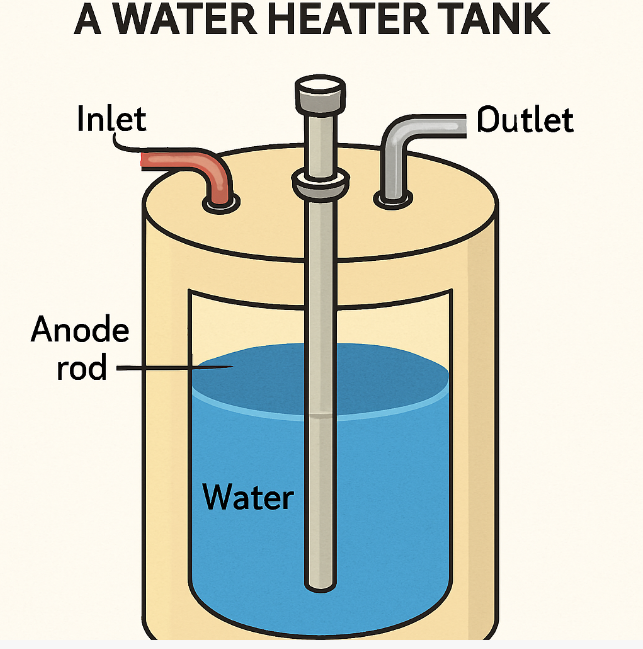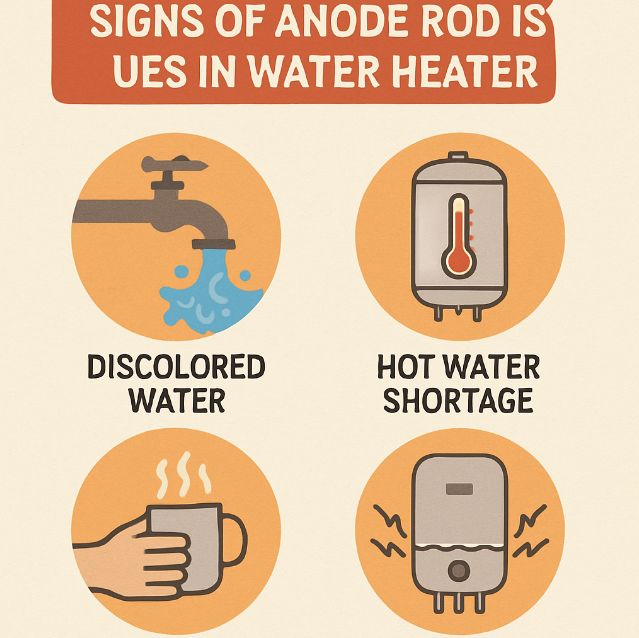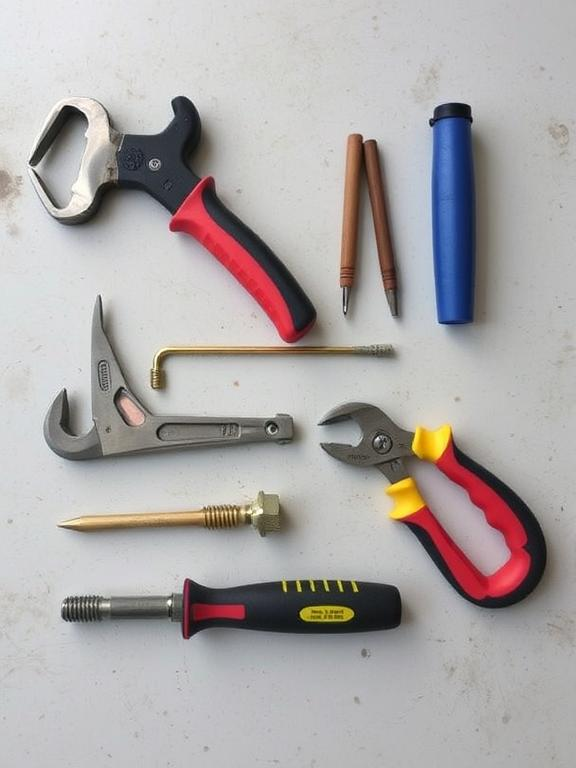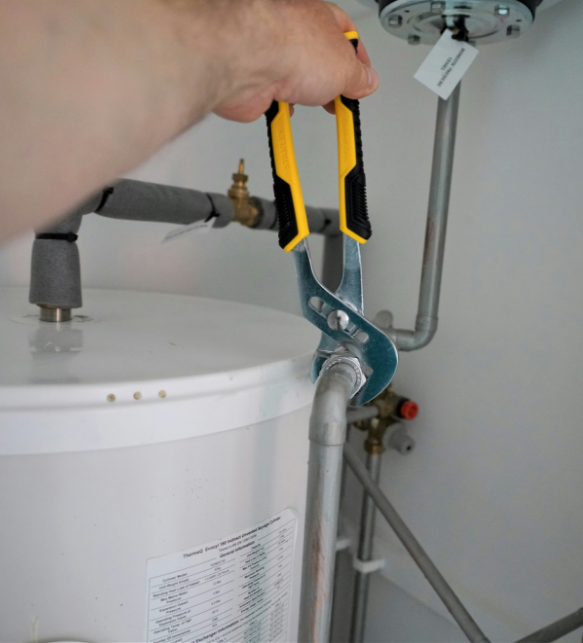Water heaters are essential for comfortable living. They provide hot water for showers, cleaning, and cooking. But they need regular care to function well.
One crucial component is the anode rod. It protects the water heater from rust and corrosion.
Understanding anode rod replacement frequency is vital for water heater longevity. Neglecting it can lead to costly repairs or replacements.
This guide will explain how often to replace an anode rod. It will also cover signs of wear and maintenance tips.
By following these guidelines, you can ensure your water heater runs efficiently. Regular anode rod checks can save you money and extend your heater's life.
An anode rod, also known as a sacrificial rod, protects your water heater from corrosion. It is a metal rod installed in the water heater tank.
The rod works by corroding in place of the tank. This extends the tank's life. Think of it as a bodyguard for your water heater.
Anode rods are crucial because they:
Prevent rust and corrosion within the tank.
Extend the lifespan of the water heater.
Help maintain water heater efficiency.
Without an anode rod, the tank would quickly rust, leading to leaks and even system failure. Regular inspections ensure the rod is doing its job effectively. Proper anode rod maintenance helps in avoiding expensive repairs down the line.

Anode rods typically have a lifespan of three to five years. However, this can vary depending on several factors. Water quality and heater usage heavily influence how long these rods last.
In areas with hard water, an anode rod may deteriorate more quickly. Regular maintenance and check-ups can help determine the rod’s condition before it fully wears out.
On average, homeowners should replace an anode rod every three to five years to ensure efficiency. Factors influencing anode rod lifespan include:
Water quality
Frequency of hot water use
Type of anode rod material
Recognizing these factors helps in planning timely replacements. Timely replacement ensures your water heater stays in good condition longer.
Identifying when an anode rod needs replacing is crucial for water heater maintenance. There are several telltale signs that you might notice. Observing these signs early can prevent significant damage.
Rusty water is a common indicator of an anode rod issue. Unusual smells, like a metallic odor, may also suggest a problem. Additionally, strange noises from the heater can signal a worn rod.
If you notice any of these signs, inspect your anode rod promptly:
Rust in water supply
Metallic odors
Strange heater noises
Addressing these symptoms can save your water heater from premature failure. Regular checks will help maintain appliance performance.

Anode rod replacement frequency is essential for maintaining water heater health. Generally, you should replace the anode rod every three to five years. This timeframe can vary based on several factors, including water quality and usage.
Hard water conditions can shorten the anode rod lifespan. If you have hard water, consider checking the rod more frequently. Regular inspection helps in determining the precise replacement timing.
Water heater manufacturers often provide guidelines on replacement. Following these recommendations ensures the heater's longevity and efficiency. Always refer to your appliance's manual for specific instructions.
To recap, keep these points in mind for replacement:
Replace every 3-5 years
Check more often with hard water
Follow manufacturer guidelines
Regular replacement safeguards against future water heater issues and ensures continuous hot water supply.
Several factors can influence how often you need to replace your anode rod. Water quality is one of the primary factors. Hard water with high mineral content can erode the rod more quickly, shortening its lifespan.
The type of anode rod also plays a significant role. Magnesium rods, though effective, may deteriorate faster in harsh conditions. Aluminum rods, however, tend to last longer in areas with hard water.
Here are key factors impacting replacement frequency:
Water quality (hard water can reduce lifespan)
Anode rod material (magnesium vs. aluminum)
Frequency of water heater usage
Your water usage patterns also matter. Heaters that operate more frequently can cause faster rod degradation. Understanding these factors helps in scheduling timely rod replacements to prevent issues.
Inspecting and replacing the anode rod is straightforward. First, turn off the water heater's power. You want to ensure there's no electricity or gas flowing.
Next, you'll need to find the anode rod. It's usually located at the top of the tank. You may have to unscrew a cover to access it.
Before removing the anode rod, partially drain the water heater. This will reduce water pressure, making the replacement easier.
Here’s a step-by-step guide to replace the anode rod:
Turn off the water heater's power supply.
Locate the anode rod at the tank's top.
Partially drain the water from the tank.
Use a wrench to unscrew the old anode rod.
Install the new anode rod and secure it tightly.
Once the new rod is installed, refill the tank with water. Then, restore the power supply. This simple process protects your water heater from corrosion.
Regular inspection every year can help catch issues early. It prolongs the heater's lifespan and maintains efficiency.

Proper anode rod maintenance ensures your water heater functions effectively. Regular checks can prevent costly repairs down the line. A few easy habits can make a significant difference.

Here are some maintenance tips to consider:
Check the anode rod annually for corrosion.
Replace the anode rod every 3-5 years, or sooner if needed.
Consider your water quality; hard water may require more frequent checks.
Clean any sediment buildup around the rod area.
Use quality rods like magnesium for better protection, especially in soft water.
Following these tips can extend the lifespan of your water heater. Good maintenance is simple and saves you money in the long run.
Many homeowners have questions about anode rod issues. Understanding the basics can save time and prevent problems. Addressing common concerns can aid in maintaining your water heater.
Here are some frequently asked questions:
How do I know if my anode rod is failing?
Can I check the anode rod myself?
What tools do I need for anode rod replacement?
These answers empower you to manage anode rod maintenance confidently. Keep these in mind to ensure your water heater's efficiency.
Regular anode rod maintenance is crucial for extending your water heater's life. By inspecting and replacing the anode rod, you prevent corrosion and costly repairs. Consistent care ensures a reliable hot water supply while saving energy.
Taking a proactive approach to anode rod maintenance can enhance your water heater's efficiency. With proper attention, you mitigate risks and preserve your appliance's performance for years. Protect your investment through simple, routine checks.